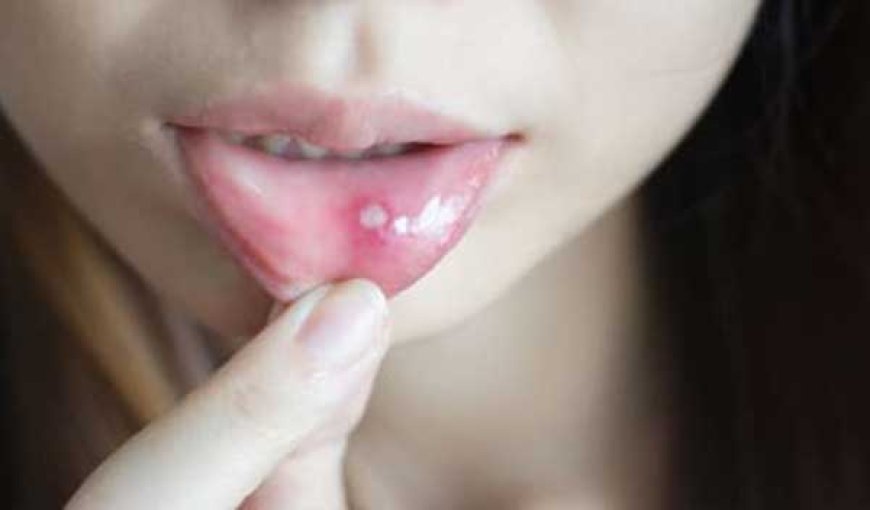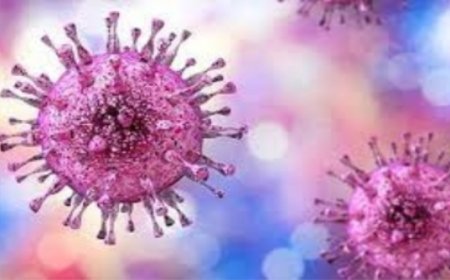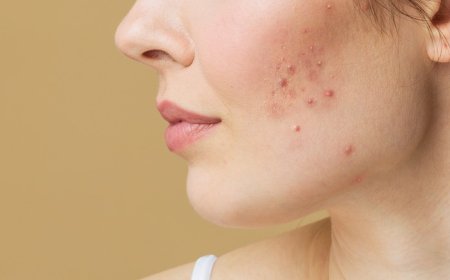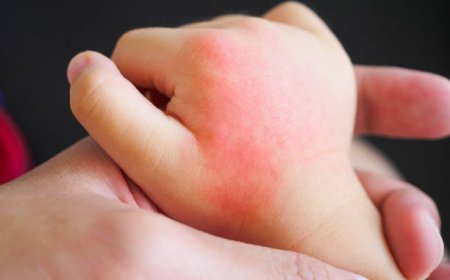Canker Sores: What Are They and How to Prevent Them?
Learn about the causes, symptoms, and treatment of canker sores, and find out how to prevent them from happening again.

Canker Sores: What Are They and How to Prevent Them?
Introduction
Canker sores, also known as aphthous ulcers, are small, painful sores that can appear on the inside of your mouth, including your tongue. They are not contagious and are not caused by poor oral hygiene. The exact cause of this disease is unknown, but they are thought to be triggered by a combination of factors, including:
- Stress
- Hormonal changes
- Vitamin deficiencies
- Allergies
- Irritation from certain foods or drinks
- Weakened immune system
It usually go away on their own within 7-10 days, but there are a few things you can do to help relieve the pain and discomfort, such as:
- Applying a cold compress to the sore
- Using a topical anesthetic, such as Orajel or Anbesol
- Rinsing your mouth with a saltwater solution
- Avoiding spicy, acidic, or salty foods
- Eating soft foods
- Getting enough rest

Symptoms
The most common symptom of a canker sore is a small, round or oval ulcer that appears on the inside of your mouth. These are typically white or yellow with a red border. They can be painful, and they may make it difficult to eat, talk, or swallow. It can occur anywhere in your mouth, but they are most common on the tongue, inner cheeks, and gums.
Causes
The exact cause of this disease is unknown. They may be caused by a virus, may be a form of allergic reaction or may result from an auto-immune condition but they are thought to be triggered by a combination of factors, including:
- Stress: Stress can weaken the immune system, making it more difficult to fight off infection. It can also cause inflammation, which can irritate the lining of the mouth and lead to the development of canker sores.
- Hormonal changes: This disease is more common in women during the week before their menstrual cycle. This is thought to be due to the hormonal changes that occur during this time. There is a link between canker sores and thyroid hormone. People with thyroid conditions are more likely to develop canker sores. This is because thyroid hormone plays a role in the immune system, the lining of the mouth, and the healing process.
- Vitamin deficiencies: A deficiency in certain vitamins, such as vitamin B12, folate, or iron, can increase the risk of developing canker sores.
- Allergies: Some people are allergic to certain foods or drinks, and eating these foods can trigger the development of canker sores. Common allergens include chocolate, nuts, citrus fruits, and gluten.
- Irritation from certain foods or drinks: Some foods and drinks, such as spicy foods, acidic foods, or salty foods, can irritate the lining of the mouth and lead to the development of canker sores.
- Weakened immune system: A weakened immune system can make it more difficult to fight off infection, which can increase the risk of developing canker sores. People with a weakened immune system, such as those with HIV/AIDS or cancer, are more likely to get canker sores. Thyroid hormone is essential for a healthy immune system. When thyroid hormone levels are low, the immune system becomes less effective at fighting off infection.
Treatment
Canker sores usually go away on their own within 7-10 days. However, there are a few things you can do to help relieve the pain and discomfort, such as:
- Apply a cold compress to the sore. This can help to numb the pain and reduce inflammation.
- Use a topical anesthetic, such as Orajel or Anbesol. These products can help to numb the pain and make it easier to eat and talk.
- Rinse your mouth with a saltwater solution. This can help to clean the area and reduce inflammation.
- Avoid spicy, acidic, or salty foods. These foods can irritate the sore and make it more painful.
- Eat soft foods. This can help to reduce the risk of further irritating the sore.
- Get enough rest. Rest can help your body to heal faster.
If you have frequent or severe canker sores, you may want to see a doctor to rule out any underlying medical conditions. There are also a few prescription medications that can help to prevent or treat mouth sores. Some medications used to treat canker sores can have side effects that can lead to weight gain.
Prevention
There is no surefire way to prevent canker sores, but there are a few things you can do to reduce your risk, such as:
- Eat a healthy diet. A diet that is rich in fruits, vegetables, and whole grains can help to keep your immune system strong and reduce your risk of developing canker sores.
- Get enough sleep. Sleep is essential for good health, and it can also help to reduce your risk of developing canker sores.
- Manage stress. Stress can weaken your immune system and make you more susceptible to canker sores. Find healthy ways to manage chronic stress, such as exercise, yoga, or meditation.
- Avoid certain foods and drinks. If you know that certain foods or drinks trigger canker sores for you, avoid them.
- Don't smoke or use tobacco products. Smoking and tobacco use can irritate the lining of your mouth and increase your risk of developing canker sores.
- Practice good oral hygiene. Brush your teeth twice a day and floss once a day to remove plaque and bacteria from your teeth and gums.
- See a dentist for regular checkups and cleanings. Regular dental checkups can help to identify and treat any of your teeth or gum disease that could be contributing to canker sores.
If you have frequent or severe canker sores, it is important to see a doctor to rule out any underlying medical conditions. There are also a few prescription medications that can help to prevent or treat canker sores.
Cold Sores
Canker sores and cold sores are two different types of mouth sores. Canker sores are small, round ulcers that appear inside your mouth, while cold sores are fluid-filled blisters that appear outside your mouth, usually on or around the lips.
-
Cold sores are caused by the herpes simplex virus (HSV). HSV is a very common virus that most people are exposed to at some point in their lives. Once you are infected with HSV, the virus stays in your body for the rest of your life. Cold sores can be triggered by a number of factors, including:
- Stress
- Sun exposure
- Illness
- Irritation
- Menstruation
-
Treatment: Cold sores can be treated with a number of over-the-counter and prescription medications. Over-the-counter medications, such as Abreva, can help to shorten the duration of a cold sore outbreak. Prescription medications, such as Valtrex, can help to prevent cold sore outbreaks.
Conclusion
It is a common and bothersome problem, but they are usually not serious. Most of the times it goes away on their own within 7-10 days. However, if you have frequent or severe canker sores, it is important to see a doctor to rule out any underlying medical conditions. There are also a few prescription medications that can help to prevent or treat canker sores. Canker sores are not a threat to your overall health problem, but they can interfere with your day-to-day quality of life.
In addition to the above, here are some additional tips that may help to prevent canker sores:
- Avoid irritating your mouth. This includes things like biting your tongue or cheek, using sharp toothpicks, or wearing ill-fitting dentures.
- Take probiotics. Probiotics are live bacteria that are similar to the beneficial bacteria that naturally live in your gut. Some studies have shown that taking probiotics may help to reduce the frequency of canker sores.
- Use a humidifier. A humidifier can help to add moisture to the air, which can help to keep the lining of your mouth moist and prevent it from drying out.
- Get regular dental checkups and cleanings. This can help to remove plaque and bacteria from your teeth and gums, which can help to reduce your risk of developing canker sores.
What's Your Reaction?






















































